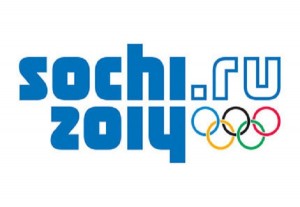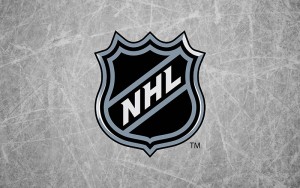Heading into Sunday’s gold medal game against Canada, we were initially believed that Swedish forward Nicklas Backstom was a late scratch for the gold medal game due to migraines. But it’s officially known and reported that Backstrom was suspended for what was to be the biggest game of his life because he tested positive for a substance people take everyday and is not on the list of banned substances in the National Hockey League.
He tested positive for Pseudoephedrine, which is commonly found in over the counter drugs such as Claritin. Pseudoephedrine is legal up to 150 micrograms per milliliter, but according to IIHF medical chief Mark Aubry, Backstrom’s level in A sample came back at 190 mg per milliliter. “I was ready to play probably the biggest game of my career, and two-and-a-half hours before the game I got pulled aside,” he said. The loss further decimated the Sweden lineup of forwards, because Henrik Zetterberg was ruled out after playing their first game with a back injury and Henrik Sedin was removed from the roster with an injury before the Olympics started. Rosters are frozen prior to the first game of the tournament so they weren’t able to add anyone else.
Backstrom was tested Wednesday February 19, presumably after Sweden’s 5-0 win over Slovenia. He recorded an assist in that game as well as their 2-1 semifinal win over Finland two days later.
The NHL is aware of the failed test and issued the following statement late Sunday:
“We understand that Nicklas Backstrom tested positive for a substance banned ‘in competition’ by the International Olympic Committee. It is our further understanding that the positive test was the result of a common allergy medication taken by the player knowingly, with the approval of the team doctor and without the intention of gaining an illegal or improper performance-enhancing benefit. In addition, the specific substance that resulted in the positive test is not currently on the League’s Prohibited Substances List.
“Subject to confirmation of the facts as we understand them, and given the fact that the substance is neither prohibited in the NHL nor was used in an improper manner here, we do not anticipate there being any consequences relative to Nicklas’ eligibility to participate in games for the Washington Capitals.”
Sweden bench boss Par Marts was furious with the International Olympic Committee when speaking about Backstrom after the game. “I’m furious that it can happen in this damned way,” he said, per Swedish news outlets TT/SVT. “It’s inconceivable that it can happen. We’re all angry that we weren’t able to compete with a full squad.” NHL.com senior writer Dan Rosen tweeted that Marts believes the IOC made up the situation to ruin their chances of winning.
Backstrom has taken Zyrtec-D daily for several years for allergies. That span of time included the 2010 Winter Olympics, which he did not test positive for. It should be noted that in 2010, Slovakia’s Lubomir Visnovsky tested positive in 2010 and was cleared after a retest and allowed to play. Backstrom was a victim of bad timing because timing didn’t allow that this time.
“It’s clear that he wasn’t intending to cheat, that he wasn’t doping,” NHL Players Association official Mathieu Schneider said. “Doping is a very serious allegation, but at some point common sense should have prevailed, and it clearly did not.”
Backstrom is the fifth reported positive drug test of the Olympics. He was the second hockey player behind Latvian hockey player Vitalijs Pavlovs, who tested positive for a food supplement on the recommendation of the doctor of his Latvian club team, Dynamo Riga. The other four positive drug tests that included Ukranian cross-country skirt Marina Lisogor, German biathlete Evi Sachenbacher-Stehle, and Italian bobsledder William Frullani were also for stimulants found in food.
Pavlovs was tested after Latvia’s 2-1 quarterfinal loss to the Canada.



